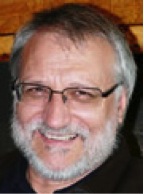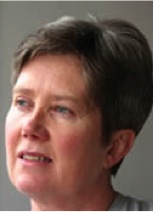The 43rd Annual Conference of the Philosophy of Education Society of Australasia, Inc. was held at the Melbourne Graduate School of Education, University of Melbourne, Australia, from 6-9 December 2013. PESA members and others attending the conference were warmly welcomed to Melbourne, often touted as the world’s most livable city.
The conference theme is 'Measuring up in Education'.
Venue: The venue for the 2013 PESA conference is the Melbourne Graduate School of Education. The address is 234 Queensberry Street, Carlton.
To download the Parallel Sessions, please click here
To download the Abstracts, please click here
The 2013 Procedings
R. S. Webster & S. Stolz (Eds.), Measuring Up: Proceedings of the 43rd PESA Annual Conference. Melbourne, December 6-9, 2013.
To download the Edited Procedings, please click here
Individual Papers
All of these papers are available in the edited procedings above.
A Critical Exploration of the Relation between Silence, Education and Assessment
EVA ALERBY & SUSANNE WESTMAN
Permanently Performing Learning Subjects: The assessment of ‘learning dispositions’ in early education
EMMA BUCHANAN
How Far Have We Really Come? Advancing the notion of an ‘ethics of care’ in the generation of inclusive quality education in post-apartheid South Africa
JYOTHI ARJUN CHABILALL
Multiliteracies and The Critical Thinker: Philosophical Engagement with Mass Media in The Classroom
LAURA D’OLIMPIO
Starting Strong III: Unpacking the Metaphor
SANDY FARQUHAR & PETER FITZSIMONS
Reading the im/possibility of ethics in pre-service teacher professional experiences
DANIELLA FORSTER
Critical Thinking in Education: Reflections on its perceived levels, method and point
ARISTIDES GALATIS
‘People love metrics’: A super sad true love story
ANDREW GIBBONS
Epistemic Responsibility and Constructivism: A virtue-based way of knowing for constructivist teaching and learning environments
YU-MING STANLEY GOH
Parental Partiality and the Educational Arms Race
DANIEL HALLIDAY
Environmental Education, Heidegger and the Significance of Poetics
RUTH IRWIN
Rational Altruism and Global Citizenship Education
LIZ JACKSON
The Way to Happiness: Caring Education and Dao De
ZHUMEI LAN
Cultivating Political Morality and Public Reason for Deliberative Citizens – Rawls and Callan revisited
CHEUK-HANG LEUNG
A Complex Question by Any Measure: Issues of justice in the education of disabled children and young people
TRISH MCMENAMIN
Measuring Up in Educational Philosophy in the 21st Century Nigeria’s Education: the fundamental problems of theory and praxis of education
VALENTINE ETTA NTUI & JAMES BASSEY EJUE
Thinking Education through Object-Oriented Philosophy: A triple pedagogical movement
SEVKET BENHUR ORAL
Measuring Manliness: Education and the boarding school novel
FILIPE D. SANTOS
Measured Policy: Competence to teach Maori Students
GEORGINA STEWART
Measurement, Metaphor, and Marks on the Page
GEORGINA STEWART
The University of Wisdom – Exploring the role of wisdom for secondary and tertiary education
CHRISTOPH TESCHERS
Slow Maths: Challenging the metaphor of education as a race
STEVE THORNTON
Phronesis as Embodied Professional Knowledge
TREVOR THWAITES
Science Education and the Metaphysics of Measurement
MAURIZIO TOSCANO
The Difficulty of Ethics Education of Science and Technology for Adults in Japan after FUKUSHIMA
TETSU UENO
Having the Courage to Measure up for Education
SCOTT WEBSTER
Can We Measure Trust in Knowledge Acquisition? A standpoint derived from Anscombe’s notion of ‘Teaching by Testimony’
YUUKI YAMAGUCHI
On Thinking (and Measurement)
RAYMOND AARON YOUNIS
Keynote Abstracts and Papers

Professor Gert BiestaUniversity of Luxembourg |
Education, measurement, and the politics of fear University of Luxembourg In one sense it is really difficult to say anything meaningful or interesting about the role of measurement in education. Many would probably agree that we now live in an age where there is a global educational measurement industry that, although itself often based 'outside' or 'above' the scope of national governments, exerts a strong influence on the direction of education policy, from the macro-level of national curricula, aims and targets, all the way down to the micro-level of everyday classroom practice. One manifestation of this is the rise of data-driven teaching. Another situation where teachers' salaries are made dependent upon the test scores their students are able to produce. There are some who make a nice career out of the measurement industry itself, and perhaps others who make a nice career out of criticising it. And while some see the impact of measurement as a gross distortion of education, others hail it as the best way forward – a way that will ultimately benefit children, young people, nations and the globe. Rather than only take sides in this debate – which, of course, remains a critically important task as well – I wish to explore a slightly different set of questions that have to do with the apparent attractiveness of measurement. I intend to focus on the way fear plays a number of different roles in the current culture of educational measurement – both in the way in which measurement seems to be a means to tame a certain fear for the unpredictability and openness of education, and in the way in which through measurement a particular politics of fear appears to be enacted, particular instilling the fear of being left behind. My ambition is to create some new openings in the discussion about measurement in education and perhaps to point at ways to become more fearless (or less fearful) in education. Download Education, measurement and the politics of fear Presentation |

Professor John OzolinsAustralian Catholic University |
Creating the Civil Society East and West: Relationality, Responsibility and the Education of the Humane Person Abstract: A recurring theme in many places concerns the nurturing and maintenance of a civil society that is committed to justice, to human fulfilment and a community that actively pursues the good of all its members. Recent events in a number of countries around the world, such as Egypt, show how powerful the human desire for dignity and self fulfilment is. While undoubtedly there is an economic aspect to human flourishing, it is not enough to have material possessions, as the disaffected populations of the wealthy nations of the West show. The creation of a civil society where there is respect for persons and a concern for the good of others, it is argued, is an important social aim and though it is not the sole responsibility of educational institutions, they have a crucial role to play in its development. It also evident that the creation of a civil society includes the family and the wider community and so in order to understand how a civil society is to be fostered, we need to understand relationality, a central concept in both the Western and Eastern understandings of human nature. If we reflect on contemporary education in both the East and the West, an important question to consider is the extent to which education measures up to developing in young people a sense of their responsibilities to one another, their families and to the wider community. In short the question of how well we are developing humane persons who are able to relate to one another and build a civil society. Arguably, the emphasis in contemporary education is on the gaining of skills to equip persons for a changing workplace and while this is not to unimportant there are equally important values and dispositions that need to be cultivated (to use Mengzi’s term). As social beings, being able to relate to one another and so to create a community which helps and sustains each of its members, is just as important as having useful skills. The centrality of this is recognised by philosophers in both the east and west, but these voices are not often heard. This paper argues that there needs to be a rebalancing of the aims of education to include the development of those values and dispositions that will foster a civil society. Download Creating the Civil Society East and West Presentation |

Professor Duck-Joo KwakSeoul National University, Korea |
Can and should we teach young students to resist the State and market? Abstract: The rise of measurement culture in school education today has eroded the authority of the public school as a moral institution of the society in both the East and West, which would transmit and cultivate the core values of civility for future members of the society. It has deeply to do with the pre-dominance of economic concern for education had by both the State and individuals in the ever-globalizing regime of knowledge economy that tends to brutally instrumentalize our knowledge-learning at the school. But it may also have to do with the rapid decline of serious talks on the purpose of education among educators since it is commonly considered to be a matter of fundamental disagreement in this anti-foundational post-modern era we are living in now. How can we, then, revive a public discourse on the purpose of education in the post-metaphysical language? Viewing Professor Ozolins’ paper in this light, I wonder if it is legitimate as well as possible to teach our future citizens to resist the State and market, as he suggests. This short response will mainly focus on the conflicting demands on public schooling imposed by the post-industrial society and on whether public schools today can live up to the tension created by them. |

Professor Penny EnslinUniversity of Glasgow |
Measuring up: The moral economy of global educational opportunity Abstract: The conference is a timely opportunity for critical examination of measurement as it is employed in education. But while it appears that too many issues, activities, processes, procedures and standards are corrupted by the inappropriate use of numerical measurement, I claim, with my co-author, Mary Tjiattas, that measurement, both numerically and metaphorically understood, does have a place in educational discourse. Building on our previous work on global justice in education, our own focus will be on the role and effect of measurement on the provision of fundamental educational resources. We take as a given moral requirement an egalitarian principle that views equality as the basic distributive principle, and thus calls for structures that ensure fair equality of opportunity for all (globally). We are thus concerned in this paper to examine closely the question of which metric of justice would have the effect of equalizing educational resources in a justifiable and appropriate way. Our discussion begins with an examination of the Rawls-Sen debate on the metric of social justice, proceeds to Pogge's analysis of "morally plausible" indices of equity, and applies the central considerations we distill from these theoretical accounts directly to the question of what fair opportunity in education requires. |
Program
| Friday 6 December | |
| 8.00am | Registration |
| 9.00 | Conference opening |
| 9.30 |
Keynote address – Gert Biesta Education, measurement and the politics of fear |
| 10.30 | Morning tea |
| 11.00 |
Plenary session - David Beckett (Chair) Measuring up with an excellent thesis: What students (and supervisors) need to know. |
| 12.00pm | Lunch (PESA Exec Meeting) |
| 1.30 |
Plenary session – Steven Stolz (Chair) The future of PESA: How can PESA best support future academics? |
| 2.30 |
Plenary session – Richard Heraud (Chair) Transitioning from the PhD: The future for early career academics in philosophy of education. |
| 3.30 | Afternoon tea |
| 4.00 |
Plenary session – Michael Peters, Gert Biesta, Penny Enslin and Joshua Pitt (Routledge) Publishing in Philosophy of Education |
| 5.00 | Break (EPAT journal meeting) |
| 6.00 - 7.00 | Welcome event (wine and finger food) – Peter Roberts (Host) |
| Saturday 7 December | |
| 9.00am |
Keynote addresses – John Ozolins and Duck-Joo Kwak Creating the civil society East and West: Relationality, responsibility and the education of the humane person |
| 10.30 | Morning tea |
| 11.00 | Parallel sessions |
| 12.30pm | Lunch |
| 1.30 | Parallel sessions |
| 3.00 | Afternoon tea |
| 3.30 | Parallel sessions |
| 5.00 - 6.00 | Book celebration (wine and finger food) – David Beckett (Host) |
| Sunday 8 December | |
| 9.00am |
Keynote address – Penny Enslin Measuring up: The moral economy of global educational opportunity |
| 10.00 | Morning tea |
| 10.30 | Parallel sessions |
| 12.00pm | Lunch |
| 1.00 | Parallel sessions |
| 2.30 | Afternoon tea |
| 3.00 | Parallel sessions |
| 4.30 - 6.00 | PESA AGM |
| 7.00 - 11.00 | Conference dinner |
| Monday 9 December | |
| 10.00am |
Plenary session – Gert Biesta, Penny Enslin, John Hattie, John Ozolins, Lyn Yates Q&A: Measuring up in Education |
| 11.30 – 12.00 | Conference closing formalities – Peter Roberts |
| (12.30 - 2.00) | PESA Exec Meeting |
